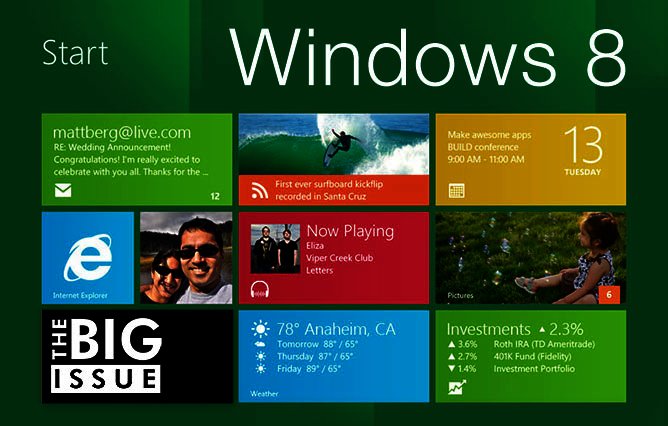
At Microsoft's Build developers conference, held last month in Anaheim, California, the world got its first glimpse of the next iteration of the planet's number one operating system - Windows 8.
It gave a good idea of what Windows 8 will look like, but more importantly, it showed that the OS will be more touch-friendly in order to support the increased importance of tablets, a computing category that completely passed Microsoft by.
Metro Style user interface
Microsoft's Windows 8 operating system (OS) introduces their new Metro style user interface (UI) as found on their Windows Phone smartphone. Sleek, stylish and refreshingly modern, Metro is better suited to touch, but can be just as easily navigated with mouse and keyboard. Live tiles form the epicentre of the user experience, with tiles able to include anything from different apps, files, media players to links to RSS feeds. These tiles are able to provide certain information without having to open it, for example a weather app will show the weather forecast for the next three days directly from the desktop.
As with Windows Phone, apps don't run in isolation, as they are able to communicate with each other within Windows 8. For instance, whilst composing an email, users can simply select photos that they wish to attach to the email from different places, the likes of Facebook, Flickr or on their PC's own hard drive. In terms of web browsing, Internet Explorer 10 is said to deliver a fast and fluid touch-optimised browsing experience to Windows 8 users, while just as Apple did with their Mac App Store, the OS will also enable users to quench their app-appetites via the Windows Store.
One OS to rule all form factors
By offering support for ARM-based chipsets, x86 (as well as x32 and x64) devices, touch and sensors, Microsoft has ensured that Windows 8 will operate on a wider range of devices than ever before. These include the usual suspects, but now also welcoming new devices the likes of 10" tablets as well as all-in-one PCs with 27" HD displays.
If anything, Windows 8 acknowledges the massive influence of smartphones and tablets in the way people want to interact with computers. For Microsoft, Windows 8 will be more of a giant leap than the usual one small step. [HD]